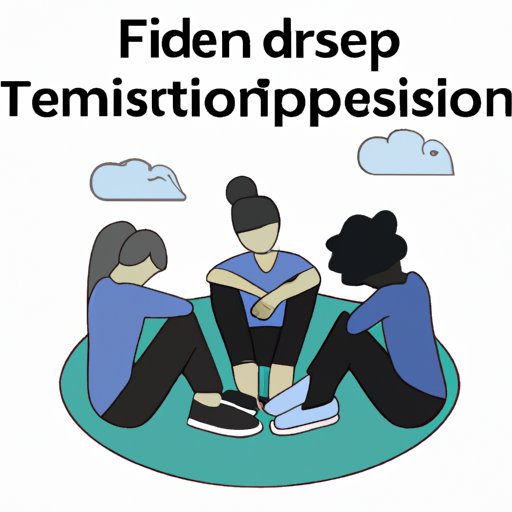Introduction
Depression is an emotional disorder that can have a serious impact on your life. It can cause feelings of sadness, loss of interest in activities, changes in appetite, fatigue, difficulty sleeping, and even thoughts of suicide. It’s important to recognize the signs of depression and take steps to address it. Here are 8 tips for coping with depression.

Reach Out For Professional Help
One of the most important things you can do if you’re struggling with depression is to reach out for professional help. A therapist or counselor can help you understand your depression and develop strategies for managing it. There are several types of therapies available, such as cognitive-behavioral therapy (CBT), interpersonal therapy, and psychodynamic therapy. Your doctor can help you find a therapist who is right for you.
Talk to a Friend or Loved One
Talking to someone you trust about how you’re feeling can be a great way to cope with depression. Friends and family members can provide emotional support, understanding, and practical advice. If you don’t feel comfortable speaking to someone in person, there are other ways to connect, such as online support groups, message boards, and social media.
Join a Support Group
Support groups can be a great way to connect with people who are going through similar struggles as you. Many local hospitals, mental health centers, and community organizations offer support groups for people with depression. These groups provide a safe space to talk about your experiences and learn from others. They can also be a great source of encouragement and motivation.

Engage in Mindfulness and Meditation
Mindfulness and meditation can help you relax and gain perspective on your thoughts and feelings. Mindfulness involves focusing on the present moment and being aware of your thoughts, feelings, and physical sensations without judging them. Meditation can help you clear your mind and gain insight into yourself and your emotions. There are many different types of mindfulness and meditation practices, so you can experiment to find what works best for you.
Exercise Regularly
Regular physical activity can help boost your mood and reduce symptoms of depression. Exercise releases endorphins, which are hormones that can make you feel happier and more relaxed. It can also help improve your self-esteem and give you a sense of accomplishment. Aim to get at least 30 minutes of exercise a day, such as walking, running, swimming, or biking.
Conclusion
Depression can be difficult to manage, but there are ways to cope. Seek professional help, talk to a friend or loved one, join a support group, engage in mindfulness and meditation, and exercise regularly. Remember, you are not alone and there is hope. With the right resources and support, you can find relief from depression and live a healthier, happier life.
(Note: Is this article not meeting your expectations? Do you have knowledge or insights to share? Unlock new opportunities and expand your reach by joining our authors team. Click Registration to join us and share your expertise with our readers.)
